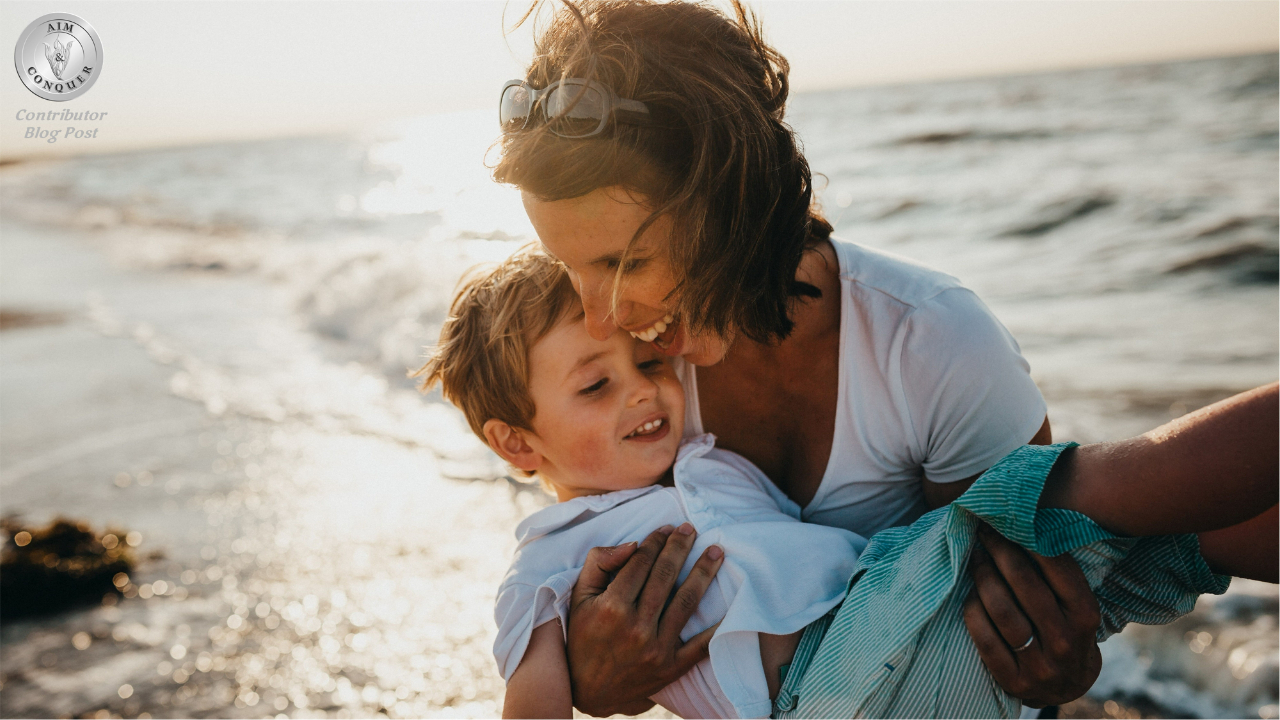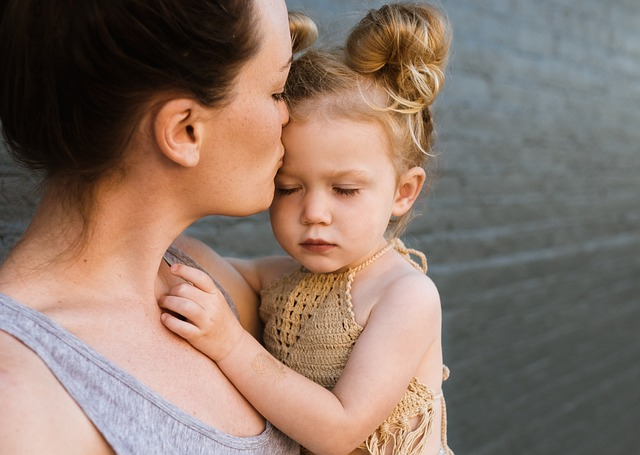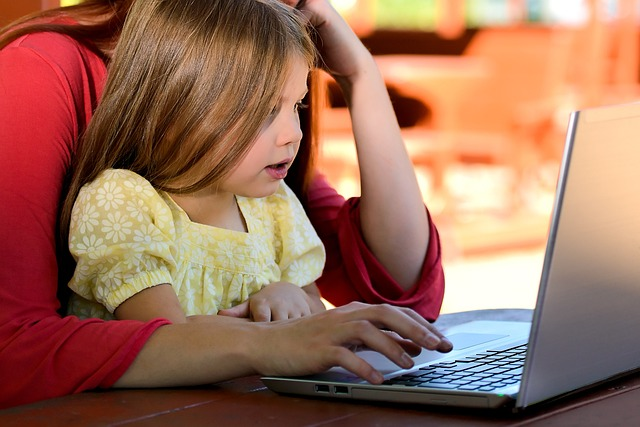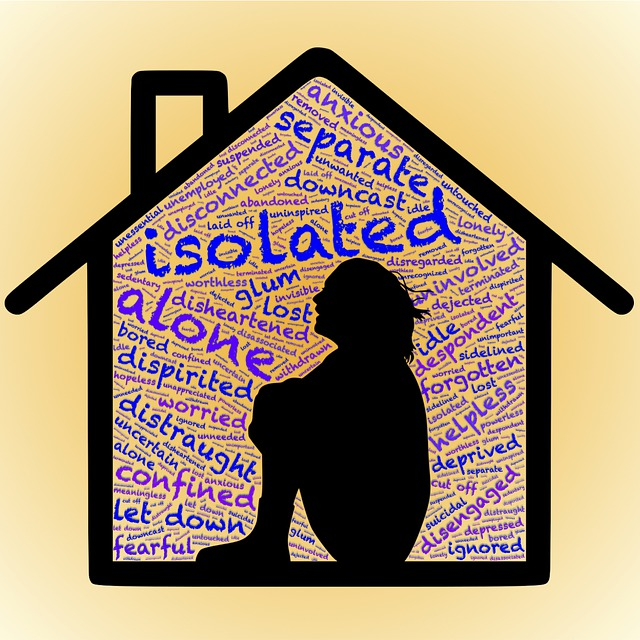
This article was written by an Aim & Conquer contributor. If you would like to contribute articles to the site, please feel free to initiate a discussion at [email protected] .
It's easy for first-time parents to feel scared or overwhelmed when the new baby is on its way. The situation is new territory, and the parents haven't figured out their parenting style yet. Most new moms and dads might be unaware of the five types of parenting styles. Of course, choosing a parenting style isn't required to be a parent, but they could help you and your partner better understand how you want to raise your child. Here is a more in-depth look at the five types of parenting styles to help you along your new journey.
Authoritarian Parenting

Authoritarian parents tend to use a firm approach regarding parenting styles. The highlights of authoritarian parenting may include sets of strict rules, high expectations, and stern discipline. The main goal is obedience and may include harsh punishments if rules are broken. Children of authoritarian parents may not get enough support and may not have much input into their daily lives.
This parenting style is great for helping children realize the importance of rules. Children raised by authoritarian parents also tend to think more about the consequences of their actions and are less impulsive. They may also be high academic achievers, disciplined, independent, and the child may typically practice self-regulation.
Those high points may sound wonderful, but research shows that putting too much pressure on a child to be perfect can lead to isolation, loneliness, poor self esteem, and a fear of not succeeding.
Authoritative Parenting

The authoritative parenting style tries to maintain a balance between being firm while also being loving and supportive. Authoritative parents don't necessarily force children to obey rules for no purpose but instead will discuss regulations and expectations as a whole family unit.
Even though the kids are included in these discussions, authoritative parents will still clarify that they are in charge, and kids will be held accountable for breaking any rules. Discipline is sometimes used, although not as harshly as authoritarian parents. It is usually shown in the form of guiding and coaching.
Authoritative parenting is often considered to be one of the more healthy types of parenting styles. Children raised by authoritative parents tend to be:
-
Cheerful
-
Friendly
-
Curious
-
Cooperative
-
Curious
-
Self-reliant
-
Goal-oriented
Attachment Parenting

Attachment parenting comes from attachment theory. In simple terms, attachment theory is a psychological explanation for the emotional bonds and relationships between people. In this case, we are referring to the emotional bond and connection between parents and their children.
People practicing this type of parenting style believe infants must be nurtured and stay close to their primary parent(s) during their first few years of life. Some experts say that the attachment style is a branch of authoritative parenting with more emphasis on affection and touch.
This parenting style differs from other parenting styles by focusing more on the infant and toddler years. The attachment style is known for helping kids cope with adversity and stress. However, children brought up with this parenting style may have difficulty being independent and may rely on their parents often for emotional needs.
The attachment parenting style is sometimes referred to as "helicopter parenting." The name is due to the copious amount of energy parents display to provide for their child's needs. This parenting style does pose a risk for the parents. They may be depriving themselves of their own needs due to the constant tending of the child.
Permissive Parenting

Permissive parents are usually warm and nurturing, but they tend to be more lax in discipline when compared to the previous parenting styles. Permissive parenting is often seen as the parents trying to be more of a "friend" to the child. This usually results in the children having more freedom and being left alone more often than children of other parenting styles. Children of permissive parents may also have very few demands and rules put on them. This may manifest in having fewer chores, responsibilities and much less structured days.
Studies show that children raised with permissive parents tend to be free thinkers and aren't afraid to say what is on their minds. Free thinkers may often lead to more creative children. The downside of permissive parenting is that the child will not be used to being told no. This will cause problems for them later in life, as the outside world may not be so kind. Being told no is crucial for child development.
Free Range Parenting

Free range parenting is similar to the permissive parenting style. Both parenting styles are a more "go with the flow" approach and have few guidelines. What is the difference between the two parenting styles? Free range parents don't just let their kids run wild—the parenting style values teaching children independence at an early age. Free range parents raise their children to do what they (the parents) feel their children are capable of doing.
This type of parenting style may only seem appropriate for older children, but it is relevant for younger children as well. Babies and toddlers can learn to explore new environments without interruption. The parent only needs to make sure that the little one stays safe.
The research says this parenting style fosters resilience and better handling of challenges and setbacks. Free range children also display higher abilities of creativity and conflict solution skills.
The one downside may be in how you define it. Some parents may have no problem letting a grade schooler walk to the park alone. At the same time, other parents may find that neglectful and dangerous. Some areas even have laws that prevent you from allowing your child to do this. You will have to use your best judgment on how "free range" your child can be.
Uninvolved Parenting

Uninvolved parenting is as it sounds: parents are unable to take care of their children, whether emotional or physical, and provide very little if any, supervision.
Uninvolved parenting can take many different forms, such as not caring about a child's safety or development. Most experts would agree that having uninvolved parents could have a negative effect on the child's life. Such effects may take the form of:
-
Mental health issues
-
Bad child behavior (delinquent behavior)
-
The child's temperament may be angrier as they age.
-
Low self esteem
-
Poor school performance
This parenting style often carries the stigma of the mom and dad being branded as neglectful parents.
How Do I Choose from the Different Parenting Styles?

Choosing from the five parenting styles doesn't have to be complicated. Every family is different, and everyone will have their own parenting style. Some parents may even choose to mix some of these parenting styles together. How do you achieve the best parenting style for you? Use the major parenting styles to determine what you value as a parent.
Do You Value Parental Control?
Suppose you want to be more hands-on in your child's development. behavior, and life, you would probably appreciate the first two parenting styles the most. These are the authoritarian and authoritative styles.
Authoritarian parents sometimes have the reputation of being too strict, and an authoritarian parent may sometimes be seen as the "bad guy." As mentioned in the authoritarian parenting style section, this particular parenting style can have negative effects on children's behavior. Authoritarian parents should be mindful of how strict they want to be.
Fusing these ideals with the authoritative parenting style may be a good idea if you still want to go with the authoritarian parenting style. Authoritative parenting is known for being the softer version of the authoritarian parenting style. Additionally, authoritative parenting is singled out as being healthier and the seemingly best parenting style.
Authoritative parenting would also be ideal for those who want to be a firm staple in their kid's life without being too overbearing.
Do you Value Raising Children Who You Feel Close To?
If you want to be close with your child and care deeply about parent child interaction, you would probably gravitate toward attachment style. Out of all the parenting styles, this one is the most focused on the early childhood stages (infants and toddlers). You can carry this on into the later years, though you run the risk of being known as "helicopter parents."
This parenting style may benefit from mixing in some aspects of authoritative parents. Practice authoritative parenting with your attachment style to ensure your child can become self-reliant.
Do You Want to be Friends with Your Child?
If you find yourself wanting to hang out with your child on a regular basis, you may be a permissive parent. When compared to different parenting styles, this is the one that may be better for the adult life of your child. This way of parenting can be done if you regularly enforce rules.
Every child needs some sort of structure and discipline to be a functioning member of society. That is why it is a parent's job to enforce rules. A permissive parent can have the best of both worlds by being firm but friendly toward their child.
Do You Want Your Child to be Independent?
If you value independence, free range might seem the most attractive of the parenting styles. Free range is also the most similar to permissive parenting. It is also one of the more lax parenting styles. The key to this fourth parenting style is not to let the child run wild and free but to allow them independence when deemed appropriate. Out of all of the perceived parenting styles, this one may boost the most self-reliance.
How to Reach Your Optimum Parenting Style
Not everyone will parent the same. What you can take away from this is that having some form of parental control is ideal. Kids will need some structure in their lives. To establish a good balance between being firm and loving, you may find that mixing parenting styles work best for you.
The Authoritative Parent Seems to have the Best Reputation
According to experts, the authoritative parent has the best child outcomes when it comes to parenting style. Authoritative parental control has the best balance of expectations and warmth for the child. The parents expect the child to behave and perform well in their endeavors, but they aren't overly harsh.
Listen to Your Kids
Parents should listen to their kids. Children will oftentimes speak up if something is wrong. If authoritarian parents choose to dismiss something as "childish antics," the child may no longer want to go to their parents for anything. This could end up putting the child in danger.
There are other negative effects that can come with not listening to your child. Ignoring a child's concerns can harm their self esteem, especially adolescents self-esteem. It may also cause the child to act out to try and get your attention. Good communication is key for any relationship, even the one with your child.
If all of this information seems overwhelming to you, it's okay. Remember to properly communicate with your child, and to enforce rules when necessary.
Are you interested in learning more about ways to manage the stress you and your team experience at work? Click below to sign up for Aim & Conquer's newsletter and to receive a free reflection on "healing in-tensions" that can support efforts to reduce stress.

